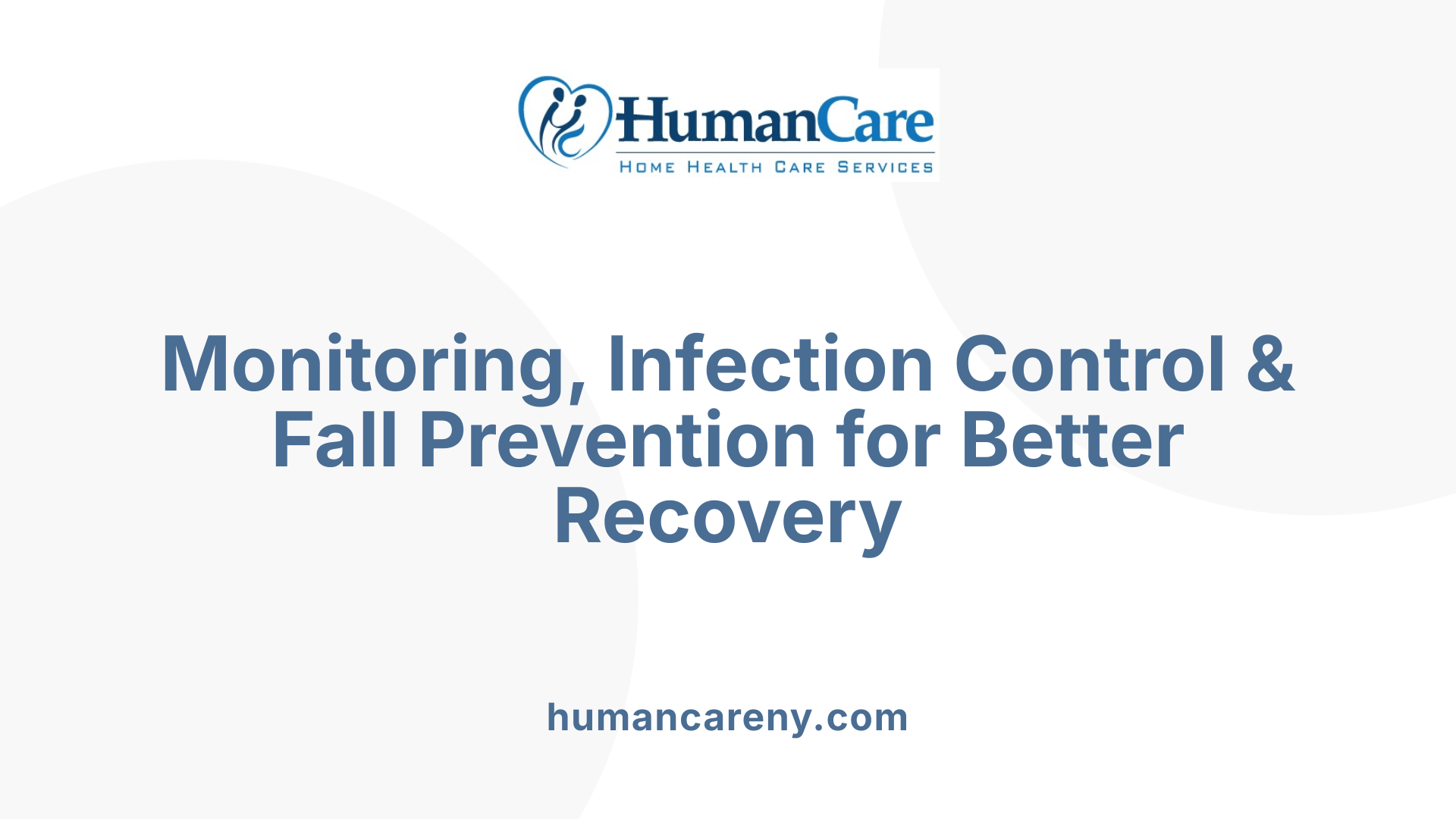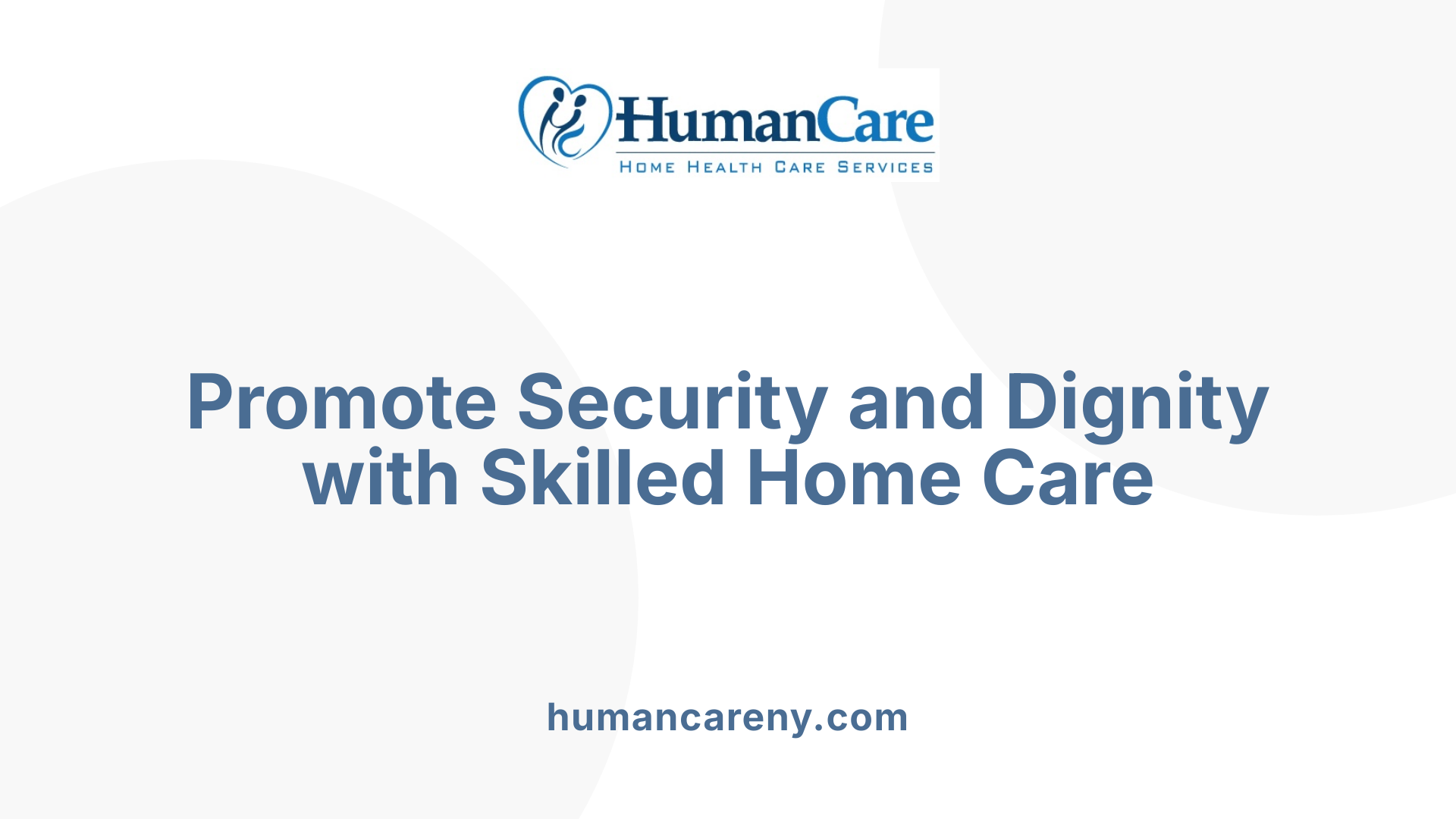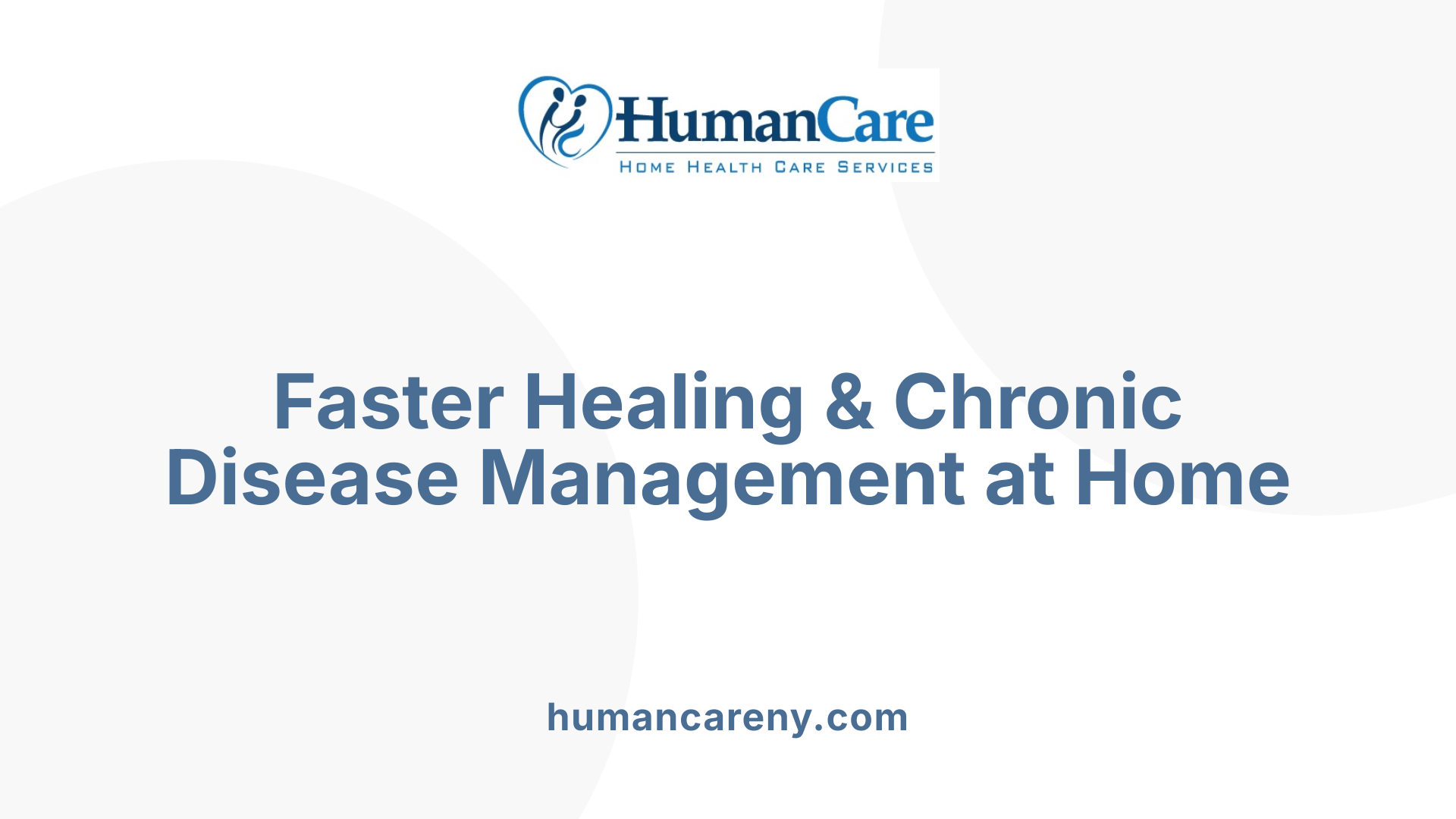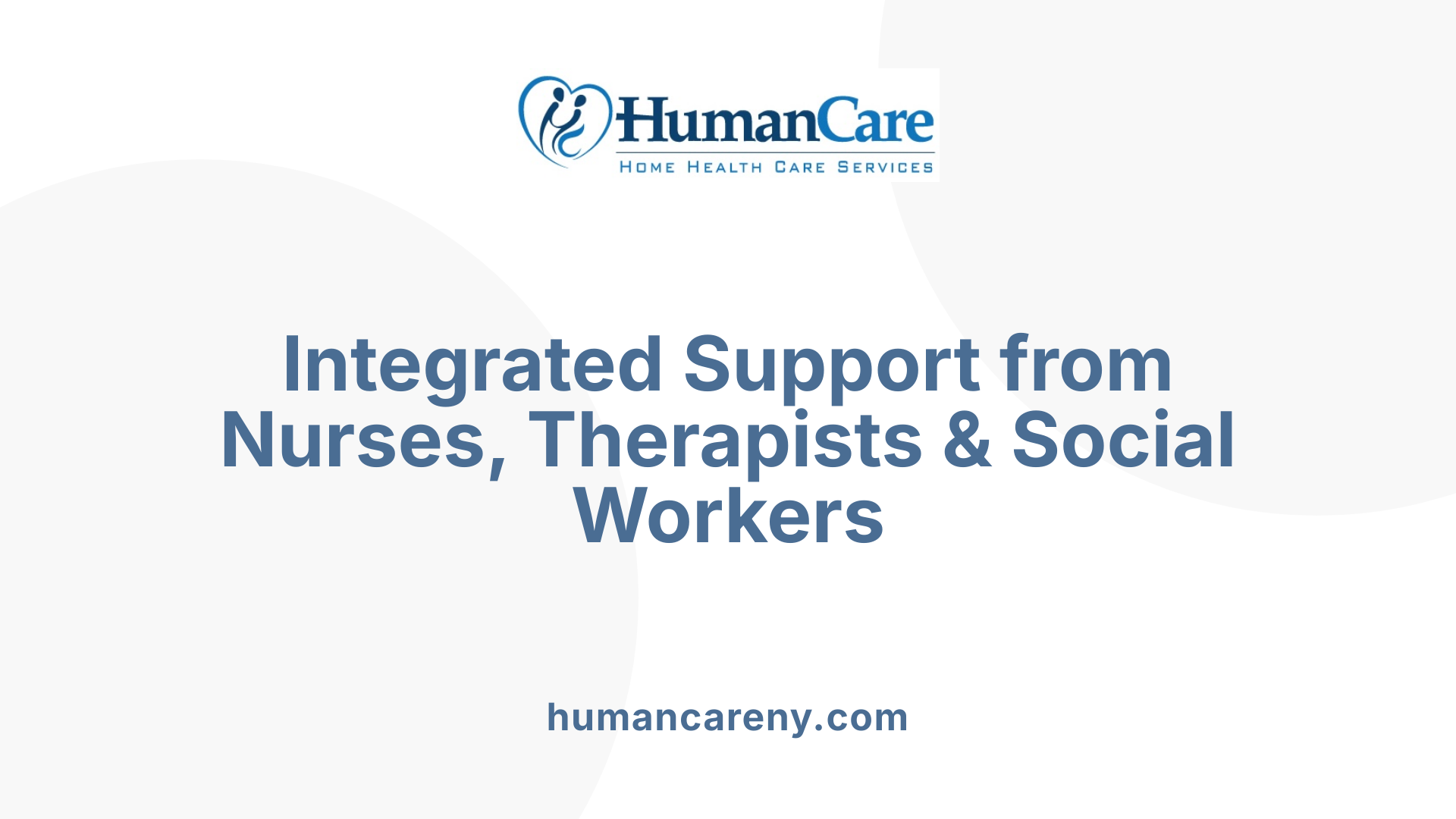Why Skilled Nursing Matters for Adults with Chronic Illnesses
Adults living with chronic illnesses face ongoing challenges that require consistent medical attention and support. Skilled nursing care delivered in the home setting offers a comprehensive solution, combining professional health services with the comfort and familiarity of one’s own environment. This article explores how skilled nursing benefits adults managing chronic conditions, highlighting key advantages such as personalized care, improved health outcomes, and enhanced independence.
Comprehensive Medical Support Tailored to Individual Needs

Customized Care Plans for Chronic Illness Management
Skilled nursing care at home is designed around personalized care plans that address each patient's unique chronic conditions and preferences. These plans enable nurses to provide targeted support, improving comfort and daily functioning while helping to manage complex illnesses effectively.
Medication Education and Management
Nurses play a crucial role in medication education, ensuring patients understand their treatments, adhere to prescribed schedules, and recognize potential side effects. This vigilant approach reduces complications and promotes better health outcomes.
Wound Care and Health Monitoring
Skilled nursing includes meticulous wound care and continuous health monitoring such as vital sign checks and symptom tracking. This proactive approach detects complications early and supports timely interventions to promote healing.
Licensed Nursing Professionals and Procedures
Care is delivered by licensed professionals including registered nurses (RNs), licensed practical nurses (LPNs), and licensed vocational nurses (LVNs). These experts are qualified to perform advanced procedures such as intravenous injections, blood draws, and infusion therapy, ensuring safe and effective care.
Coordination of Care and Continuity
Consistent care providers foster strong communication and seamless coordination among the care team. This continuity not only simplifies care delivery but also cultivates trust, ultimately enhancing patient satisfaction and health outcomes.
Improving Safety and Health Outcomes Through Skilled Nursing

Monitoring Vital Signs and Symptoms to Prevent Complications
Skilled nursing care at home includes regular monitoring of vital signs and symptoms, which is essential for managing chronic illnesses and preventing complications. Nurses conduct routine tests such as blood sugar checks and blood pressure monitoring, helping to detect early signs of health issues. This proactive approach enables timely interventions, reducing the risk of hospitalizations and improving patients' daily functioning and comfort.
Reducing Infection Risks in Home Environments
Home-based skilled nursing care reduces the risk of infections compared to hospitals and other healthcare facilities. A controlled home environment limits exposure to pathogens often present in medical settings. Nurses provide wound care and maintain sterile procedures during treatments like intravenous therapy, further protecting patients from infections.
Fall Prevention and Daily Living Assistance
Skilled nursing services include support for activities of daily living such as bathing, dressing, and mobility, which contributes to fall prevention. Nurses and home health aides help seniors maintain physical safety and independence while providing interventions tailored to individual needs. This assistance reduces falls and related injuries, fostering a safe home environment.
Evidence-Based Practices Improving Post-Discharge Outcomes
Home health care follows evidence-based standards ensuring high-quality care after hospital discharge. Research shows significant improvements in health outcomes within 60 days of receiving skilled nursing services at home, including fewer hospital visits and reduced mortality rates. Personalized care plans and consistent monitoring promote faster recovery and better management of chronic conditions.
| Aspect | Skilled Nursing Role | Impact on Patients |
|---|---|---|
| Vital Sign Monitoring | Routine testing, early symptom detection | Prevents complications, enables early interventions |
| Infection Control | Sterile wound care, controlled home environment | Lowers infection risk compared to healthcare facilities |
| Fall Prevention & ADLs | Assistance with mobility and personal care | Enhances safety, maintains independence |
| Evidence-Based Care | Tailored care plans, coordinated multidisciplinary team | Reduces hospital readmissions, supports recovery |
Supporting Independence and Comfort in the Home

How does the familiarity of the home environment benefit care recipients?
Home care benefits individuals by allowing them to remain in a familiar and comfortable setting, which reduces anxiety and improves adherence to health routines. Being at home fosters a sense of security and independence, enabling seniors and patients with chronic illnesses to maintain established daily habits, leading to enhanced wellbeing.
What personal care support is typically provided to help maintain activities of daily living (ADLs)?
Personal care assistance includes help with bathing, dressing, grooming, mobility, and hygiene. Home health aides and trained personnel offer these services to support seniors in managing their daily routines, preserving their independence, and reducing the risk of falls or accidents.
How does home care provide emotional support and companionship?
Home health care offers companionship through regular visits by care teams and family involvement that reduce feelings of loneliness and social isolation. Emotional well-being is supported via friendly interactions and consistent communication, which contribute positively to patients’ overall mental health.
In what ways does skilled nursing at home aid in pain management and recovery?
Skilled nursing care at home includes medication management, wound care, and monitoring vital signs—all essential components for effective pain control and recuperation. This personalized nursing attention can speed recovery after surgery or illness, as well as improve comfort by providing timely interventions and education on symptom management.
Together, these services provide a holistic approach to supporting independence and comfort for those needing skilled care within the home environment.
Reducing Hospital Visits and Enhancing Recovery

How does skilled nursing support quick recovery from surgery or illness at home?
Skilled nursing care at home plays a vital role in speeding up recovery by providing medical support in a familiar, comfortable environment. This includes wound care, medication management, vital sign monitoring, and early intervention for complications. Receiving care at home reduces anxiety and promotes adherence to recovery plans, which helps patients regain strength faster without the added risks often found in healthcare facilities.
How is chronic disease managed to prevent acute exacerbations?
Home health nurses monitor symptoms closely, ensuring that chronic conditions such as diabetes and COPD remain stable. Medication education and management are provided to enhance compliance and understanding, preventing complications that often lead to emergency hospital visits. Skilled nursing care also assists with blood sugar testing, injections, and other chronic disease procedures to maintain health between medical appointments.
What home-based primary care and therapy services are available?
Home health care includes a multidisciplinary team offering services like physical, occupational, and speech therapy tailored to individual needs. These therapies support functional independence and reduce risks such as falls. Additionally, home-based primary care and nursing services deliver ongoing assessments and adjustments to care plans, ensuring continuous support in managing complex health issues.
How does skilled nursing reduce hospital readmissions and emergency visits?
Regular monitoring, medication management, and patient education provided through home health services significantly lower the chance of hospital readmissions. Studies show that patients receiving home care experience fewer emergency visits and better outcomes post-discharge for up to six months. This continuity of care allows early detection of health issues, preventing crises that require hospital treatment.
| Aspect | Description | Impact on Recovery and Hospital Visits |
|---|---|---|
| Skilled nursing interventions | Wound care, medication administration, vital sign checks | Speeds recovery, manages complications early |
| Chronic disease management | Symptom monitoring, blood sugar testing | Prevents exacerbations, reduces emergency visits |
| Therapy services | Physical, occupational, speech therapy | Improves function, decreases fall risks |
| Continuity of care | Consistent providers, personalized care plans | Enhances communication, early problem detection |
| Patient and caregiver education | Medication management, health monitoring | Improves adherence, lowers hospital readmission rates |
Economic and Practical Benefits of Home Skilled Nursing Care
How is home skilled nursing care more cost-effective than facility-based care?
Home skilled nursing care offers significant cost savings compared to hospital stays or nursing home care. Families can choose specific services tailored to the patient's needs, avoiding unnecessary costs associated with round-the-clock facility care. By enabling recovery and chronic condition management at home, home care often prevents costly hospital readmissions and delays the need for long-term institutionalization.
What flexible service options are available to meet individual patient needs?
Home care services are highly customizable, allowing patients to receive only the support they require. Options include skilled nursing procedures like wound care and medication management, personal care such as bathing and mobility assistance, and therapy services. Care plans are personalized to match health conditions, preferences, and schedules, and services can be provided intermittently, typically up to 8 hours a day and 28 hours per week, with extensions based on provider assessment.
How does home skilled nursing care support family caregivers?
Family members benefit greatly from home nursing and allied services. Skilled nurses and home health aides offer medication reminders, personal care support, and educational resources that alleviate caregiving burdens. This assistance helps reduce caregiver burnout and enhances the overall quality of care for the patient by allowing families to share responsibilities with trained professionals.
What payment options exist for skilled nursing at home?
Home skilled nursing care can be financed through multiple sources. Medicare covers certain home health services when patients meet eligibility criteria and the care is deemed medically necessary, typically for recovering from surgery, injuries, or illness. Private insurance, long-term care insurance, military benefits, and out-of-pocket payments are other common funding options. It is important to check each plan’s specifics, as coverage varies and most private insurance plans do not cover all home care expenses.
Multidisciplinary Teams Delivering Holistic Care

Roles of nurses, therapists, social workers, and aides
Home health care relies on a multidisciplinary team to provide comprehensive support tailored to each patient’s needs. Registered nurses (RNs) and licensed practical/vocational nurses (LPNs/LVNs) deliver skilled nursing services such as medication management, wound care, vital sign monitoring, and complex procedures like intravenous injections. Therapists—including physical, occupational, and speech-language—support recovery and help maintain or improve daily functioning. Medical social workers assist patients and families with care coordination, emotional support, and accessing community resources. Home health aides and trained personal care attendants help with daily living tasks such as bathing, dressing, grooming, and mobility, ensuring safety and comfort.
Integrated care for complex chronic conditions
Individuals living with chronic illnesses benefit significantly from this coordinated approach. The team works together to monitor symptoms, manage medications, and educate patients, which reduces hospital readmissions and promotes better health outcomes. Personalized care plans are reviewed regularly to adjust for changing needs, ensuring that support remains aligned with each person’s preferences and health status. This integration enhances comfort and independence while effectively managing conditions such as diabetes, COPD, and heart disease.
VA programs and specialized geriatric care
The Department of Veterans Affairs (VA) offers specialized in-home and residential nursing care for veterans with complex health issues. Services include home-based primary care, hospice, palliative care, and adult day health programs, often coordinated through the Geriatric Patient Aligned Care Team (GeriPACT). These teams provide expert care for multiple chronic diseases and dementia, emphasizing coordinated management both at home and in clinical settings. Veterans unable to live alone can access community residential care options overseen by the VA, ensuring continuity and quality of care.
Coordination to simplify communications and care planning
A consistent care team fosters strong communication between providers, patients, and families. Simplified care coordination reduces confusion and supports seamless transitions between different care settings when necessary. This continuity not only builds trust but also helps prevent complications by enabling early intervention and prompt adjustments to care plans. By integrating nursing, therapy, social work, and aide services, multidisciplinary teams enrich home health care, empowering individuals to maintain independence and improve their quality of life.
Choosing Quality Skilled Nursing Services for Chronic Illness Care
Why Accreditation and Licensing Matter
When selecting skilled nursing services for chronic illness care, it's crucial to verify that providers are properly accredited and licensed. Accreditation ensures that the agency meets established standards of quality and safety, offering reassurance about the level of care your loved one will receive. Licensed agencies are authorized to provide skilled medical services under regulatory oversight, which is essential for maintaining consistent, professional care.
Understanding Staff Qualifications and Roles
A quality skilled nursing service employs licensed professionals such as Registered Nurses (RNs), Licensed Practical Nurses (LPNs), and Licensed Vocational Nurses (LVNs). These trained nurses perform a range of medical tasks including medication management, wound care, vital sign monitoring, and infusion therapy, all vital for managing chronic conditions effectively. Knowing the qualifications and specific roles of the care team helps families identify the right level of expertise needed.
Evaluating Personalized Care Plans and Service Availability
Top-tier home care agencies create individualized care plans tailored to each patient’s unique health needs and preferences. This personalized approach supports better health outcomes and fosters trust. Additionally, understanding the availability of services — including part-time or intermittent skilled nursing scheduled up to 28 hours per week — is important to ensure consistent and flexible care that fits the patient’s lifestyle and condition.
Key Factors in Choosing Home Care Providers
When selecting a home care provider, consider:
- Accreditation and licensing status
- Staff training and certifications
- Range of skilled nursing and support services offered
- Development of customized care plans
- Service flexibility and scheduling options
- Cost transparency and insurance coverage
Researching these factors will help families select skilled nursing services that deliver comprehensive, competent, and compassionate care, ultimately improving quality of life for those managing chronic illnesses at home.
The Transformative Impact of Skilled Nursing on Chronic Illness Management
Skilled nursing care in the home profoundly benefits adults with chronic illnesses by providing specialized medical support combined with comfort, safety, and personalized attention. This approach enhances health outcomes, reduces hospitalizations, and fosters greater independence, all while supporting families and optimizing costs. As healthcare needs evolve, skilled nursing at home emerges as a vital resource, empowering individuals to manage chronic conditions effectively in the place they call home.
References
- 7 Benefits of Skilled Nursing Care for Chronic Illness Care
- Skilled Nursing, Personal Care & Daily Support at Home
- Services for Older Adults Living at Home
- Home Health Services Coverage
- 10 Benefits of Home Health Care
- Nursing homes, assisted living, and home health care
- Living With Chronic Conditions: How Home Care Can Improve ...
- Skilled Nursing Care Services



